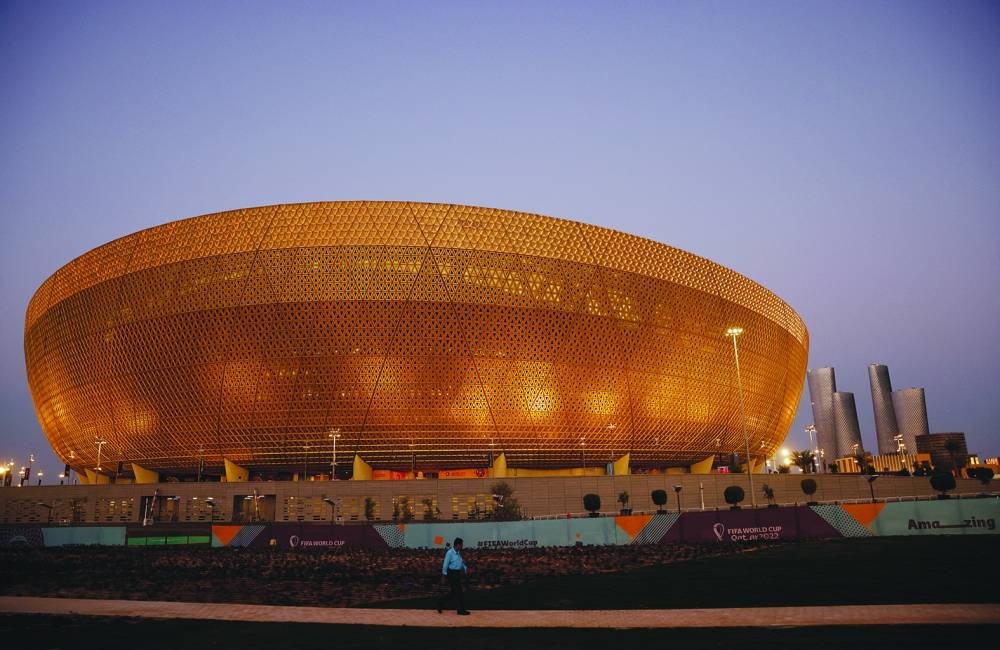With the highly successful hosting of FIFA World Cup Qatar 2022, the country has positioned itself as a globally competitive sports tourism destination while enhancing the quality of life for residents through its legacy, two professors from Hamad Bin Khalifa University's (HBKU) College of Science and Engineering noted.
In a recent article published on www.moderndiplomacy.eu, Dr Christos Anagnostopoulos, assistant professor in Sport Management and Dr Kamilla Swart, associate professor and director of the Sport and Entertainment Management programme, observed that legacy has been at the forefront of the FIFA World Cup Qatar 2022 and is aligned with the National Vision 2030. Dr Anagnostopoulos is also the Unesco co-chair holder and director of the Chair on Governance & Social Responsibility in Sport at UCLan, Cyprus.
“The infrastructure development that has taken place, whether in the form of enhanced transportation and mobility services or new sports and recreation facilities, will potentially strengthen Qatar’s positioning not only as a globally competitive sports tourism destination but also by enhancing the quality of life for residents,” the authors explained in the article.
“Environmental enhancements have been central to Qatar’s World Cup, with FIFA and Qatar issuing a joint Sustainability Strategy for the first time, based on five sustainability commitments aimed at providing innovative environmental solutions to address current environmental challenges. We have seen this in different areas, such as in the innovative cooling technologies for the stadiums,” they recalled.
According to the article, the World Cup has also been associated with increasing opportunities for women and girls in sport and for persons with disabilities. “Two illustrative cases are the value co-creation from stakeholders such as Generation Amazing and Qatar Foundation (QF), which have partnered to offer coaching to girls and women at Oxygen Park, or QF’s Ability-Friendly Programme, which has trained coaches to further develop football in Qatar.
The authors say that people should be mindful of how the term ‘legacy’ is used and a clear distinction should be made between outputs, outcomes, impact, and then legacy, and it goes beyond mere semantics.
The article says that the football stadiums, Doha Metro, and Hamad International Airport, together with the necessary road infrastructure should be seen as the immediate outputs of hosting the FIFA World Cup in Qatar. “So, if the metro system is considered an output of the event, the outcome is the number of people that are using it during the event. Impact, in turn, will be how many residents in Qatar alter the way they move around the city of Doha, Lusail, and other areas post-event. Legacy is then understood in terms of the changes in attitudes and behaviour,” the article, highlights.
The authors note that Qatar’s successful hosting of the 2022 FIFA World Cup boosts its track record of hosting major international sporting events. They also highlight the role of 20000-plus volunteers and their contributions in the huge success of the tournament and how their lives being impacted through their various roles in the tournament.
“With the upcoming 2023 AFC Asian Cup, 2024 FINA World Swimming Championships, a Formula 1 race each year for the next 10 years, and the 2030 Asian Games, the country will undoubtedly increase its resolve to become the first Arab and Muslim country in the Middle East to ever host the Olympic Games,” they added.

“The infrastructure development that has taken place will potentially strengthen Qatar’s positioning not only as a globally competitive sports tourism destination but also by enhancing the quality of life for residents”

